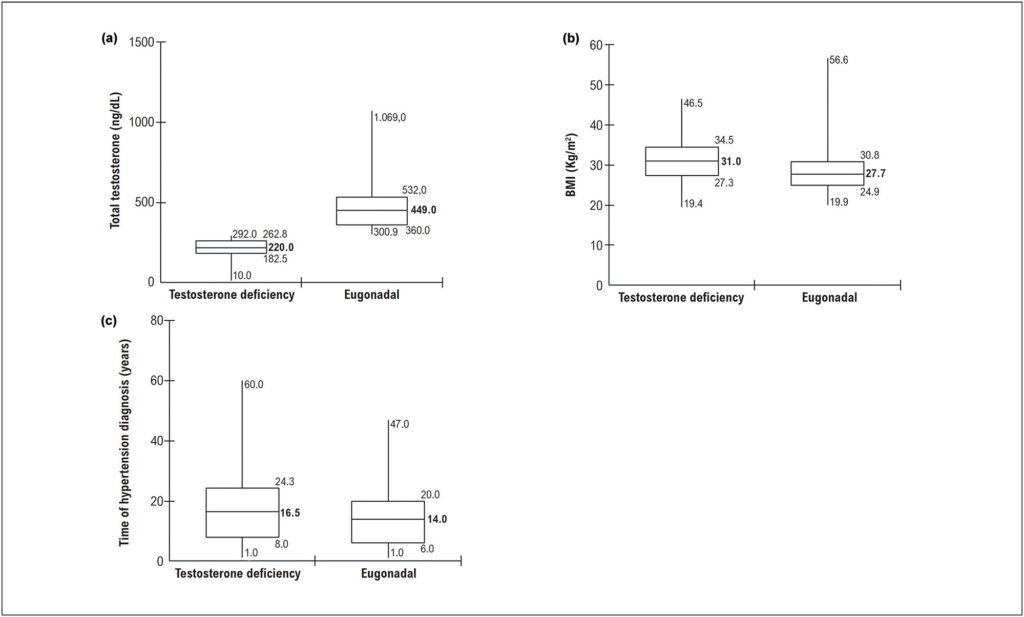Arq. Bras. Cardiol. 2024; 121(3): e20230138
Testosterone Deficiency in Hypertensive Men: Prevalence and Associated Factors
This Original Article is referred by the Short Editorial "Relationship of Testosterone with Obesity and Arterial Hypertension".
Abstract
Background:
Testosterone deficiency (TD) is a prevalent condition in our midst and still very neglected. Arterial hypertension (AH) is one of the possible associated factors.
Objectives:
To determine the prevalence of TD in a hypertensive male population and the factors associated with its occurrence, such as age, time since hypertension diagnosis, number of antihypertensive classes, body mass index (BMI), diabetes, dyslipidemia, chronic kidney disease (CKD), positive symptoms of TD (positive ADAM questionnaire) and use of spironolactone.
Methods:
Cross-sectional study with administration of the ADAM questionnaire, assessment of biochemical, clinical, and anthropometric data. Patients were stratified into DT and normal testosterone groups. Categorical variables were compared using the chi-squared test and continuous variables using the Mann-Witney test; variables with significance (p<0,05) were analyzed by multivariable linear regression.
Results:
The prevalence of TD was 26.36%. There was an association between TD and body mass index (BMI) (p=0.0007) but there was no association with age (p=0.0520), time of hypertension diagnosis (p=0.1418), number of classes of antihypertensive drugs (p=0.732), diabetes (p=0.1112); dyslipidemia (p=0.3888); CKD (p=0.3321); use of spironolactone (p=0.3546) or positive ADAM questionnaire (p=0.2483).
Conclusions:
TD was highly prevalent and positively associated with BMI. Total testosterone (TT) declined by 8.44ng/dL with a one unit increase in BMI and dropped by 3.79ng/dL with a one-year increase in age.
Keywords: Hypertension; Hypogonadism; Obesity; Testosterone
1,057

